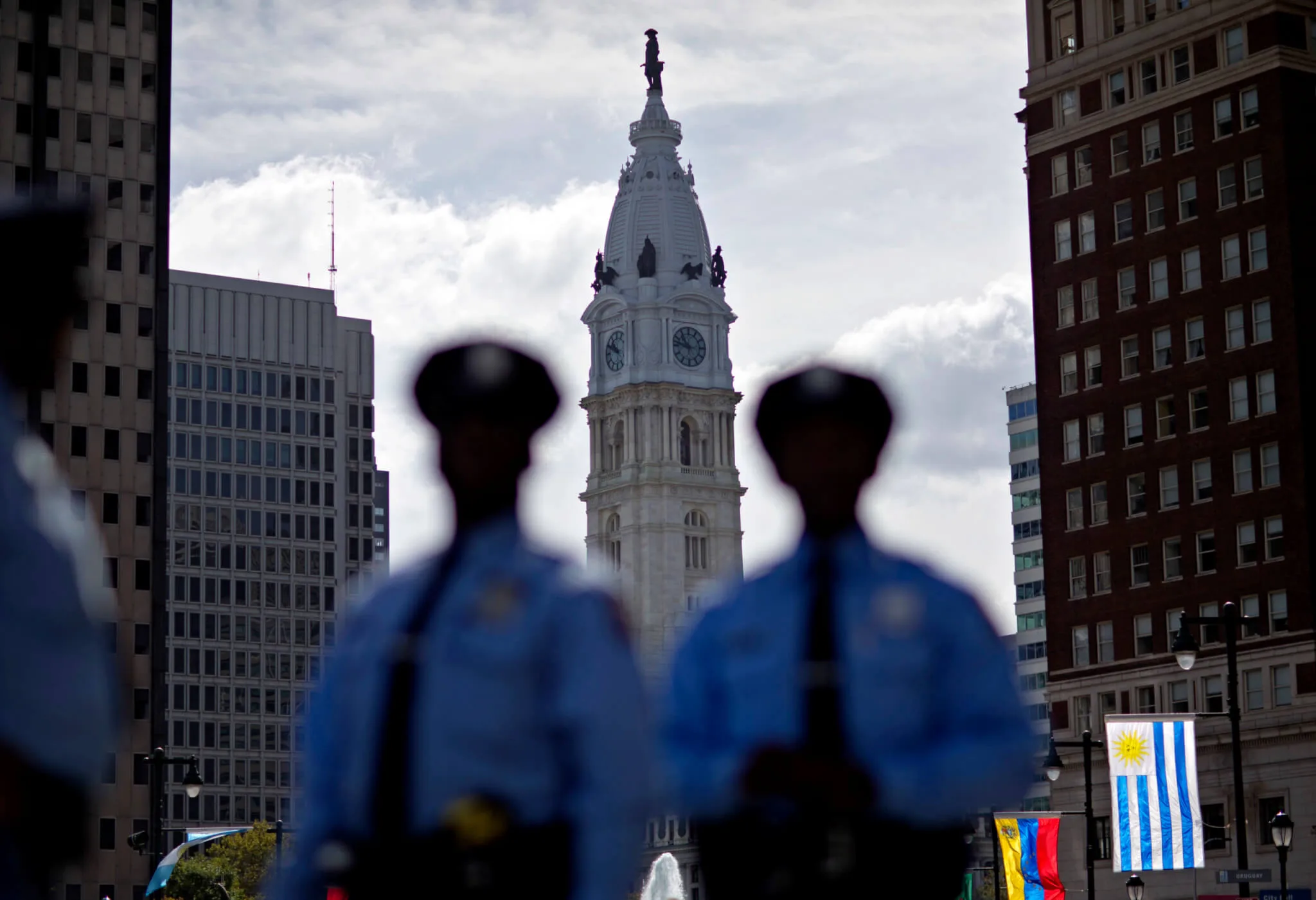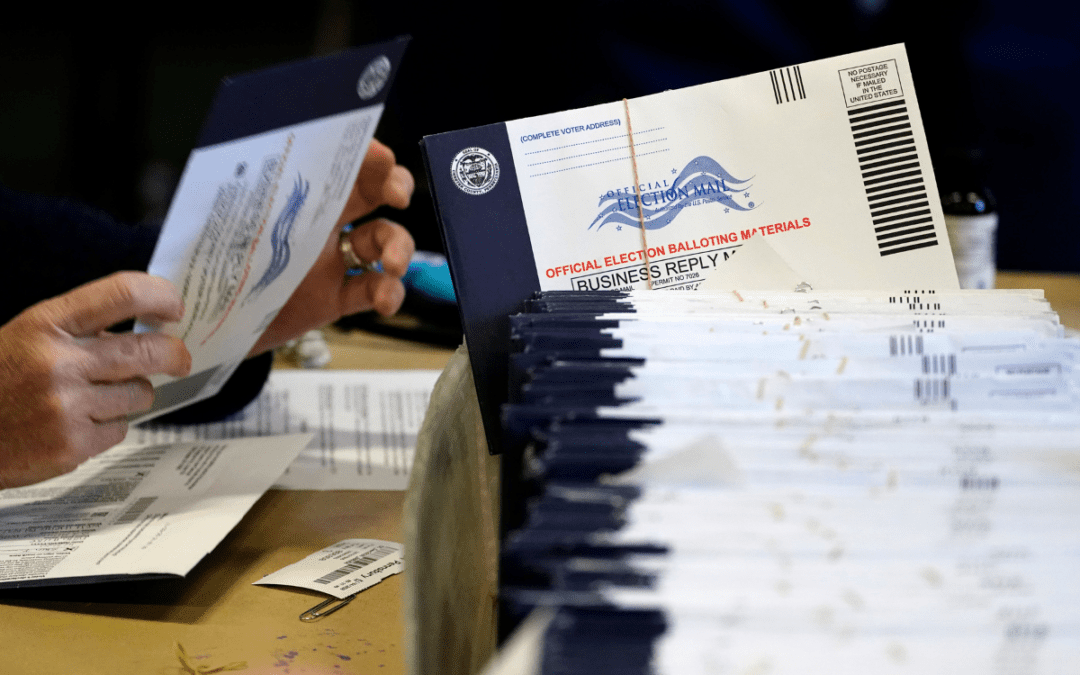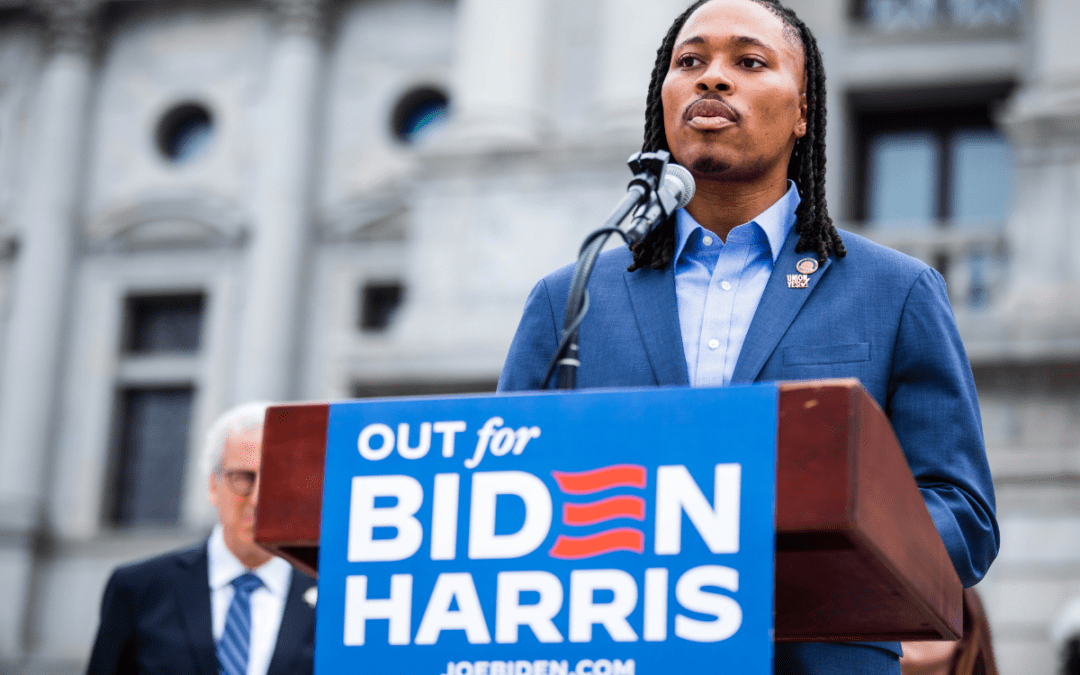
Police stand along Benjamin Franklin Parkway as City Hall stands in the background in 2015. (AP Photo/David Goldman)
“Right now, we are created by executive order. In theory, if you get a different mayor sometime in the future, the mayor could eradicate it. Now, it can’t be destroyed,” said the acting executive director of the existing commission.
Philadelphia City Council is working to decide what kind of power it wants to give a new police advisory commission, now that it has the support of Philadelphia voters.
“You have to be tone deaf not to hear the cries since George Floyd and now [Walter Wallace Jr.]. … And what I hope to establish is a renewed faith in a process that not only safeguards the city of Philadelphia, but the men and women in blue as well,” said City Councilman Curtis Jones Jr., chairman of the Public Safety Committee. “The passage of the charter gives us authorization to actually create the Commission. Now…we are in a listening phase.”
Jones said he wants to hear from a variety of voices—”from Black Lives Matter to people who are actually in the police force, and different associations such as NOBLE (National Organization of Black Law Enforcement Executives), even the FOP.”
That’s important, he said, because “oversight without insight is just not good. Imagine us as a blank canvas and what we’re about to do is put paint on that canvas. Imagine that the other laws are actually those different colors that we have to add to that canvas. Every aspect, from the time we recruit an officer, to the time we place them on the street is the different paint we put on that canvas to judge a police officer doing their duties. What have you been trained to do? What are you authorized to do? What are you not supposed to do?”
RELATED: Walter Wallace Jr.’s Parents Called for Medical Help. Police Showed Up Instead and Killed Him.
The existing police advisory commission was established in1993 with a mission “to serve the community by helping to improve the relationship between the police and community,” according to its website.
On the PAC website, the office says it’s responsible for reviewing police department policies and procedures, holding public meetings to discuss “issues around Police matters,” and providing “recommendations on how to improve the Police department with the Mayor, City Managing Director, and Police Commissioner.”
The commission has been criticized for being ineffective, mainly because of understaffing, underfunding, and a lack of disciplinary power.
Anthony Erace, acting executive director of the PAC, estimated the budget averages $700,000 annually, but now stands at about $540,000 due to COVID cutbacks. The commission had a staff of 10 before the coronavirus pandemic, he said, and now has only six. They receive about 130 to 150 complaints a year, although he said all of these are not “policed.” Some citizens report complaints directly to the police department.
For years, community leaders have called on city officials to correct the problems with the police advisory commission.
Melanie DeBouse and other organizers from POWER Live Free, the criminal justice arm of the interfaith organization, in December submitted a list of demands for reforming the advisory commission to Mayor Jim Kenney and other elected officials.
They called for an “independent agency, properly funded…[that] gives citizens the opportunity to know their voices are going to be heard.”
DeBouse, co-director of POWER Live Free, said the group wants to make sure that authorities don’t just “give these men and women in blue a pass.
“They have to be accountable for their actions,” DeBouse said. “Our Black and brown people are dying in the streets and getting shot in the back. You can’t say you justify a killing when you shot somebody in the back or rest your knee on their neck. They are unjustified homicides and going without penalty.”
RELATED: Philadelphia Officials: ‘We Need to Do a Better Job’ in Handling Mental Health Crises
After the death of George Floyd in Minneapolis and days of protests in Philadelphia, City Council voted to put the question of expanding the police advisory commission to Philadelphia voters.
Philadelphians voted overwhelmingly (509,933 to 133,874) this month to expand the commission’s powers.
Erace said the vote to create the new commission has opened the door for a host of possibilities.
“Right now, we are created by executive order. In theory, if you get a different mayor sometime in the future, the mayor could eradicate it,” he said. “Now, it can’t be destroyed. By creating an independent agency that is better funded, better expanded, it allows us to conduct more meaningful oversight. Right now, we do policy, practice, and custom investigations. We do some community outreach and complaint services—guiding, auditing and monitoring for people that want to submit a complaint against police. What we would be able to do in an expanded format is provide all those services in a more meaningful way to more citizens.”
Erace added that the commission recently submitted a proposal to the City Council that outlines how the new commission could be organized. One of the main pieces of this proposal is an independent administrative prosecution unit for police accused of misconduct. Currently, the commission does not hold disciplinary power.
“[It] would hopefully add more legitimacy to the current internal discipline process for administrative misconduct that’s not criminal, which is the overwhelming majority of it,” Erace said. “The goal is to increase the confidence of investigations that occur internally within the police department.”
DeBouse said it’s important that the commission has a sufficient budget and staff.
RELATED: This Is What It Means to Defund the Police
“It has to have investigatory powers, it has to have transparency in the exchange of information, which means when the police are doing an investigation and a report is written by an officer, then the PAC who is charged to do an investigation should have all the access to the information that internal affairs may have,” she said. “In the absence of that, it ties our hands in the ability to properly investigate and to determine the degree that egregious acts should be penalized.”
Jones said he believes the commission should be able to recommend disciplinary action.
“I think that should be offered to the actual authority of the police commission,” he said.
Whatever powers the new commission gets, Jones said, it “will be priced at what is needed to get it actually done… What we want to do is design the ship and then figure out the price tag. I can safely say it is going to be more than what it is now. $500,000 is not going to do it.”
Politics

Pennsylvania redesigned its mail-in ballot envelopes amid litigation. Some voters still tripped up
HARRISBURG, Pa. (AP) — A form Pennsylvania voters must complete on the outside of mail-in ballot return envelopes has been redesigned, but that did...

Biden makes 4 million more workers eligible for overtime pay
The Biden administration announced a new rule Tuesday to expand overtime pay for around 4 million lower-paid salaried employees nationwide. The...

Malcolm Kenyatta makes history after winning primary for Pa. Auditor General
State Rep. Malcolm Kenyatta, who was first elected to the state House in 2018, won the Democratic nomination for Pa. Auditor General and will...
Local News

What do you know about Wawa? 7 fun facts about Pennsylvania’s beloved convenience store
Wawa has 60 years of Pennsylvania roots, and today the commonwealth’s largest private company has more than 1,000 locations along the east coast....

Conjoined twins from Berks County die at age 62
Conjoined twins Lori and George Schappell, who pursued separate careers, interests and relationships during lives that defied medical expectations,...





